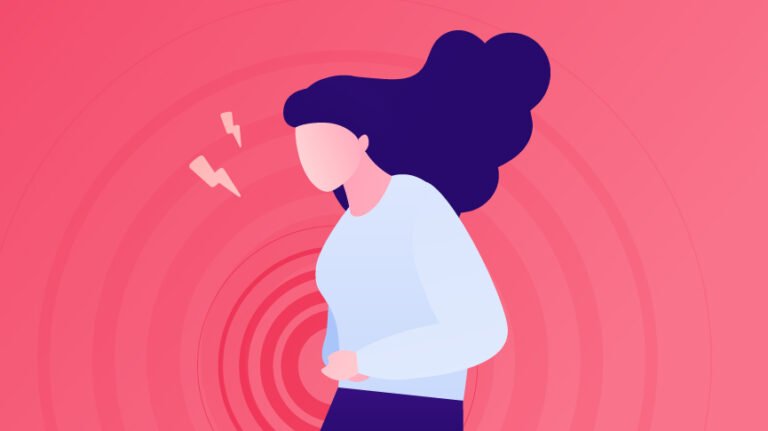Women are 2-6 times more likely to have irritable bowel syndrome (IBS) and twice as likely to have inflammatory bowel disease (IBD) compared to men.
Gastrointestinal problems (GI) are much more common in women due to many differences in physical makeup, from slower gastric emptying and different enzyme systems to hormone-related symptoms that occur during menstruation and menopause.
Here’s a breakdown of common digestive problems in women, what causes them, and how to deal with them.
Because GD issues are more common in women
Women are more likely address GI issues such as:
- IBS
- Constipation
- Inflammatory Bowel Disease
- Pelvic floor dysfunction
- Cholelithiasis
Females have more organs in the lower abdomen for reproduction that are next to the colon and small intestine, which makes their digestive system work slightly differently than males.
In addition, certain surgeries such as C-sections, hysterectomies and ovarian surgeries can also lead to gastrointestinal problems, often due to pelvic floor dysfunction that is common in women who were pregnant and gave birth vaginally.
Pelvic floor dysfunction can lead to symptoms such as lower abdominal pain, lack of bowel control, constipation, prolapse and problems with passing stool.
How Menstrual Cycles and Menopause Affect Your Stomach
Hormonal fluctuations that women experience have a direct impact on gastrointestinal processes. For example, your period often comes with increased visceral (organ) sensitivity, making your stomach more sensitive to pain.
Additionally, during your period, your body secretes a compound called prostaglandin. Prostaglandins cause the uterus to contract to help expel the mucus. However, they also cause contraction of nearby organs, resulting in symptoms such as diarrhea and cramps.
There are also increased levels of progesterone in other phases of the cycle that relax your muscles and can lead to constipation and bloating.
Common gastrointestinal issues and treatment options
Chronic Constipation
Chronic constipation is common in women because the female colon empties at a slower rate than men (although the difference narrows with age). Eating a high-fiber diet, staying hydrated, and exercising regularly can help reduce constipation.
You can also take over-the-counter medications such as laxatives or stool softeners to relieve symptoms. If these methods don’t seem to work, see your doctor for additional tests or medications.
Irritable Bowel Syndrome (IBS)
IBS is a chronic condition that affects the gastrointestinal tract, causing bloating, abdominal pain, gas, diarrhea and constipation. IBS patients are hypersensitive to irritants that usually don’t bother other people.
Research on IBS shows that emotional stress can make IBS worse, which means that part of controlling IBS is learning how to regulate your stress and emotional state. That said, IBS is not a “functional” problem, which is good news. There is nothing “wrong” with the stomach and there is no damage to the intestinal lining.
There is no specific treatment for IBS other than lifestyle changes, a low-FODMAP diet, and coping strategies for life’s stressors.
Inflammatory Bowel Disease (IBD)
IBD is found twice as often in women as in men. Both Crohn’s disease and ulcerative colitis fall under the umbrella of IBD, and women may develop a less severe course of Cohn’s, particularly if they have given birth to multiple children.
Hormonal fluctuations that occur during pregnancy can improve the disease or make it worse randomly. Symptoms include weight loss, blood in the stool, anemia and diarrhea.
Doctors usually diagnose this disease after a colonoscopy and then look at the biopsy samples. Treatment varies, but generally takes the form of long-term medications, many of which you can take during pregnancy to relieve symptoms.
Colorectal cancer
Colorectal cancer is the third most common cancer for women in the U.S. Women should follow current guidelines and start screening at age 50. earlier age. Patients should discuss screening options with their physician to determine optimal screening options.
Common stomach problems in women
Gastroparesis
A key reason why women tend to experience more bloating and nausea than men is that their stomach empties more slowly.
Certain conditions such as infections, diabetes, previous stomach surgery and low thyroid levels can damage the nerves responsible for emptying the stomach and lead to a condition known as gastroparesis. Some common symptoms of gastroparesis are abdominal bloating, fullness, and weight loss.
Your doctor may screen you for the diagnosis and prescribe you to eat more frequent, smaller, lower-fat meals to aid digestion.
Gastritis
Gastritis refers to inflammation of the stomach, which can be caused by frequent use of non-steroidal anti-inflammatory drugs (NSAIDs) such as ibuprofen and aspirin. Women are more likely than men to use these medications for a variety of reasons (such as period pain), and over time, these medications can irritate the lining of the stomach and lead to ulcers.
Fortunately, there are new types of drugs with similar effects to NSAIDs, such as COX-2 inhibitorswhich may be less harsh on the GI tract (although it may be linked to a higher rate of heart attacks). If you frequently take NSAIDs, you should talk to your doctor about protecting your stomach.
